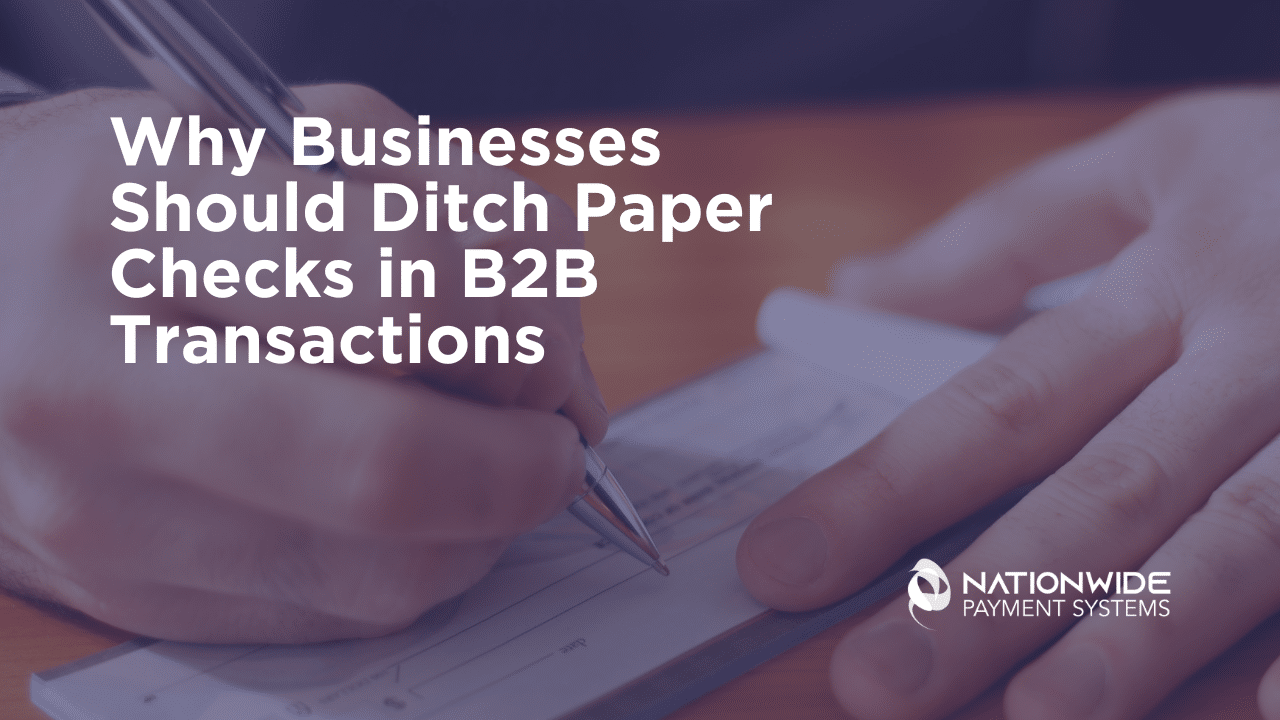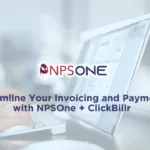Why Businesses Should Ditch Paper Checks in B2B Transactions

In B2B transactions, using checks as a primary form of payment has been a long-standing tradition. However, as the business landscape evolves, it becomes increasingly apparent that this traditional method needs to be updated and incurs unnecessary costs. Many US businesses still heavily rely on checks for purchasing and supply chain payments despite the inefficiencies and expenses associated with this practice. Change is undoubtedly challenging for many companies, but it is crucial to recognize the financial benefits and operational efficiencies that can be gained by embracing alternative payment methods, particularly those that offer accelerated payment terms.
B2B merchant sellers play a pivotal role in driving this change by demonstrating to suppliers how card payments with accelerated terms can be more cost-effective than traditional check payments. Also, getting businesses to pay via ACH, sometimes called E-check, will help reduce your B2B company’s overall Cost of acceptance, especially when considering the day’s sales outstanding (DSO). By shedding light on businesses’ absurd costs when utilizing checks, merchant sellers can effectively push for the widespread adoption of more efficient payment methods, ultimately driving checks to the grave.
The question is, “Can you show the business this analysis?” The answer is a resounding “yes,” and here’s why.
Having a payment portal or link where you can send your customers is essential for getting paid faster. While you might have some costs, it is cheaper than waiting for your customers’ money for 15, 30, 45, or 60 days or more, essentially using you as a bank. You can even charge them 1-2% for using their credit card and offer free ACH.
The Inherent Challenges of Check Payments Using checks in B2B transactions poses several challenges for buyers and suppliers. The cumbersome process of issuing, mailing, depositing, and reconciling checks contributes to delayed payments and increased administrative burden. Moreover, the days it takes for checks to clear and the subsequent day’s sales outstanding (DSO) can significantly impact a business’s cash flow and working capital.
There has been a lot of fraud, with paper checks stolen from mailboxes, sending both the payers and the business getting paid into a tailspin of finger-pointing.
The costs and inefficiencies become glaringly apparent when considering the entire lifecycle of a check payment, from creation to clearance. Accelerated Payment Terms: A Game-Changer for B2B Transactions In contrast, accelerated payment terms, particularly those associated with card payments, offer a compelling alternative that addresses many of the shortcomings of traditional check payments. By leveraging card-based payment solutions with accelerated terms, businesses can streamline payment processes, reduce DSO, and optimize their working capital. The transparency and speed of card payments benefit the buyer and provide immediate cash flow advantages to the supplier, fostering stronger business relationships and enabling growth opportunities.
The Cost Analysis: Making the Business Case for Change To effect meaningful change, B2B merchant sellers must present a comprehensive cost analysis highlighting the financial advantages of adopting accelerated payment terms over traditional check payments. This analysis should encompass the direct and indirect costs associated with check payments, including printing, postage, manual processing, reconciliation, and the opportunity cost of delayed funds.
By quantifying these costs and analyzing them with the efficiencies and savings offered by accelerated payment terms, businesses can see the compelling business case for change. Driving Change: The Path Forward Armed with a thorough cost analysis and a compelling value proposition, B2B merchant sellers are poised to drive the transformation of payment practices within US businesses. By engaging with suppliers and demonstrating the tangible benefits of accelerated payment terms, merchant sellers can catalyze a shift towards more efficient, cost-effective, and transparent payment methods. The exposure of the absurd costs associated with check payments will catalyze change, ultimately leading to the widespread adoption of accelerated payment terms and relegating checks to obsolescence.
The Cost of payment acceptance is much less than:
- Waiting to get paid
- Floating your customers a loan of sorts
- Using your capital instead of using it for your buying needs
- Accessing your line of credit
- Frees up time for employees to do money-making tasks
- Employees do not have to call customers asking when they will get paid; change your policy to only electronic payments today!
The time has come for business owners to reevaluate their approach to B2B payments and embrace the advantages of accelerated payment terms. By demonstrating the financial benefits, operational efficiencies, and cash flow advantages of card payments with accelerated terms, B2B merchant sellers can lead the charge in transitioning businesses away from the archaic practice of check payments. The exposure of the absurd costs incurred by enterprises using checks will undoubtedly pave the way for a future where accelerated payment terms reign supreme, offering a win-win solution for both buyers and suppliers.








